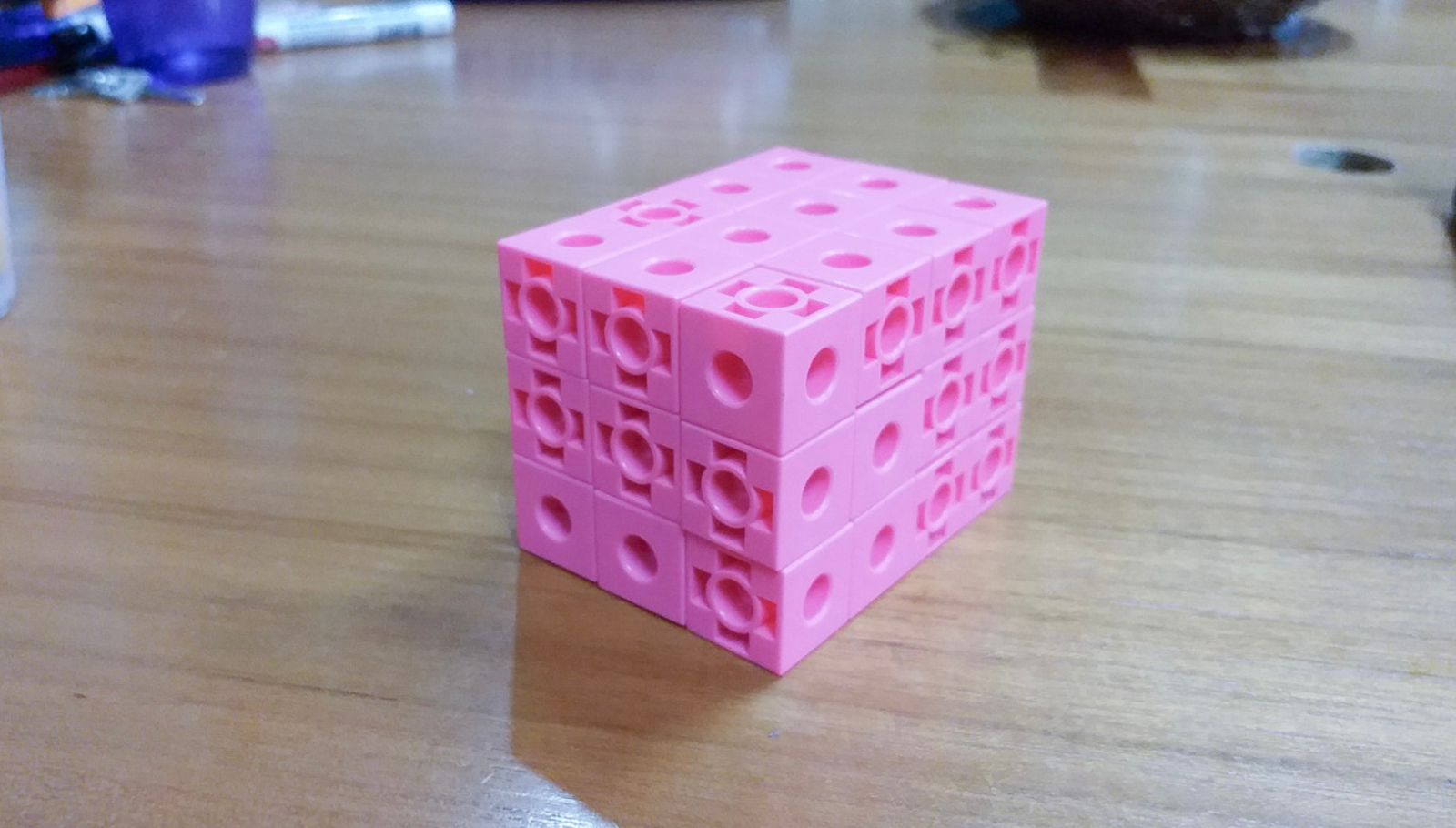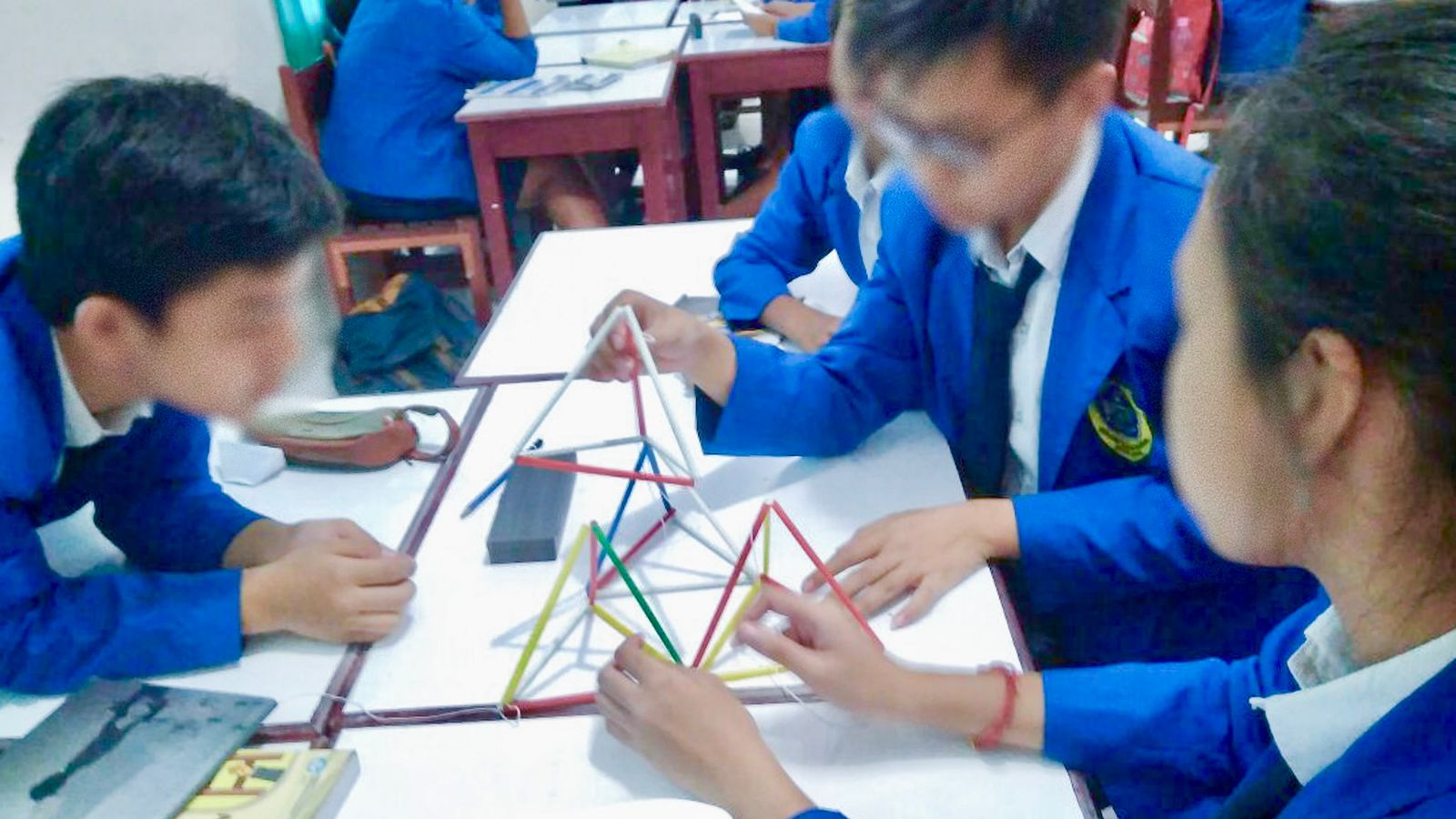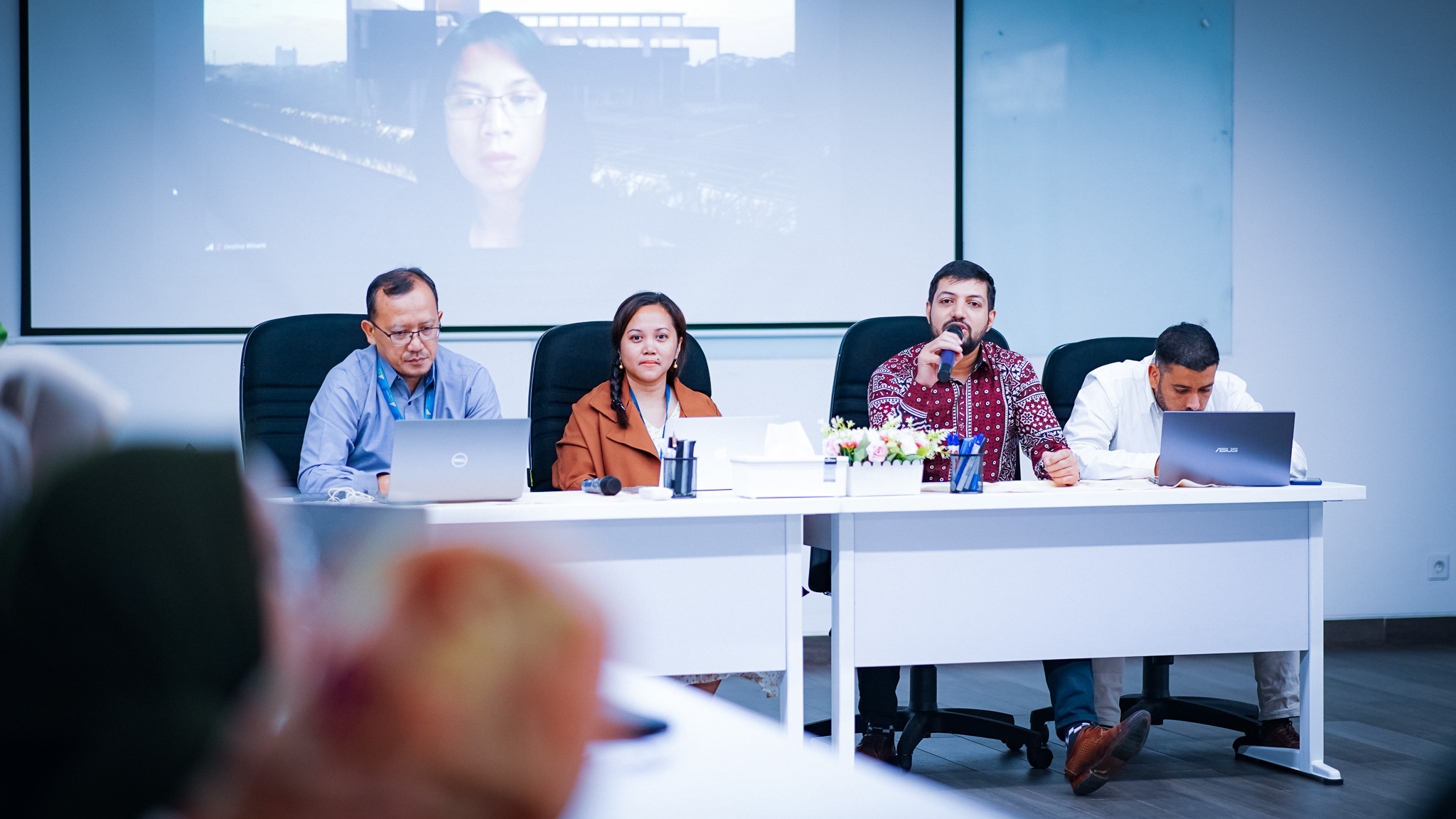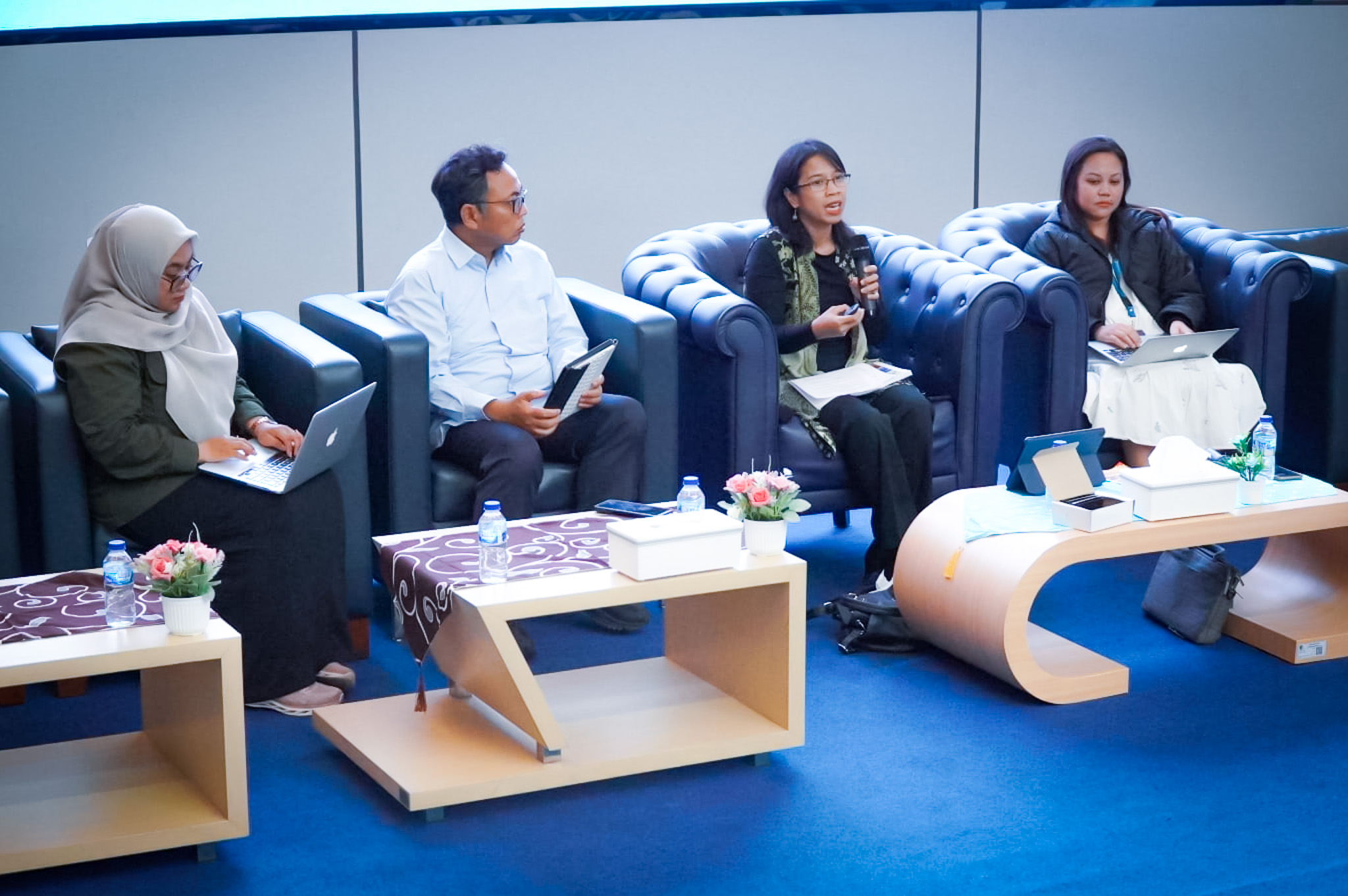Learn Math in a Fun Way with Dr. Destina Wahyu Winarti
September 13, 2024Contributor: Supriyono | Editor: Dadi Darmadi | Photo: Achmad Jatnika & Destina W. Winarti

Let us take a moment to reflect on our school days. Imagine we were sitting in math class, staring at the numbers and equations on the board. Did you feel excited about it, or did your heart sink knowing that another confusing math lesson lay ahead?
If you are in the first category, that is great for you. But if you are in the latter, worry not! You are not alone. For many students, math was a challenge that felt insurmountable. It is often seen as distant and difficult, a public enemy that turned once-curious minds into frustrated ones.
But what if it did not have to be this way? What if math could be transformed into a subject that is enjoyable to learn? This is the question that mathematic scholar Dr. Destina Wahyu Winarti, from the UIII Faculty of Education, strives to address. In her latest published journal article, Dr. Destina found a way to make math more accessible, more relatable, and—dare we say it—more enjoyable.
“So, this is an experimental study that assessed the effectiveness of a spatialized mathematics intervention on the mathematical performance and spatial visualization skills of students from an underprivileged Indonesian community,” Dr. Destina said.
The main concept of the study is the so-called “spatial reasoning,” which is “the ability to visualize and manipulate objects in space.” This is a skill we all use in everyday life, such as when we pack a suitcase, arrange furniture, or even navigate a crowded room. In her study, Dr. Destina asked, could this everyday skill be the key to unlocking a better understanding of math?

To find out, she teamed up with Assoc. Prof. Sitti Maesuri Patahuddin and Prof. Tom Lowrie from the University of Canberra, Australia. Together, they conducted a study with 407 eighth-grade students, dividing them into experimental and control groups. The experimental group received the spatial mathematics intervention, while the control group continued with the standard mathematics curriculum.
For the experimental group, Dr. Destina and the team introduced a new kind of math lesson, one that incorporated spatial reasoning into the curriculum. Instead of just memorizing formulas, students were encouraged to visualize problems, think about shapes, and explore solutions in a more hands-on, intuitive way.
“The pre-test and post-test indicated that the students receiving spatial intervention exhibited significant improvements in spatial visualization skills and mathematics performance compared to those who did not,” Dr. Destina explained. “This suggests that one of the possible solutions to improve students’ mathematics performance and their spatial ability is through spatializing the mathematics curriculum.”

Dr. Destina’s findings in innovating mathematics education have the potential to improve student's math performance, especially for those who have traditionally struggled with the subject. By integrating spatial reasoning into the curriculum, she has shown that math can be more than just numbers and equations—it can be a dynamic and engaging subject that taps into students’ natural abilities and interests.
Dr. Destina’s study aligns with the values that UIII upholds in conducting breakthrough research that can generate innovations and make impacts on societies, not only in the education aspect but also in other fields such as economics and business, politics and social sciences, and Islam and Muslim societies.
- UIII Extends Application Deadline for 2025 International Admissions
- What Does Eid al-Fitr Mean for the UIII Academic Community?
- UIII PhD Scholar Ararat Kostanian Delivers Lecture at Armenia's Yerevan State University
- Swedish Ambassador to Indonesia Applauds UIII’s Vision, Explores Future Collaboration
- Depok Mayor Supports UIII as the Green Lung of Depok and Beyond
- Depok Mayor Pledges to Build Performance Hall at UIII
- New Parking Facility Launched, Part of UIII-Sentra Medika Hospital Partnership
- Yogyakarta’s UII Won 1st FisFastFest’s Clash of Campuses
- Vice Minister of Religious Affairs Praises UIII as a Global Hub for Islamic Education
- Hurray!! UIII Wins Football Championship


